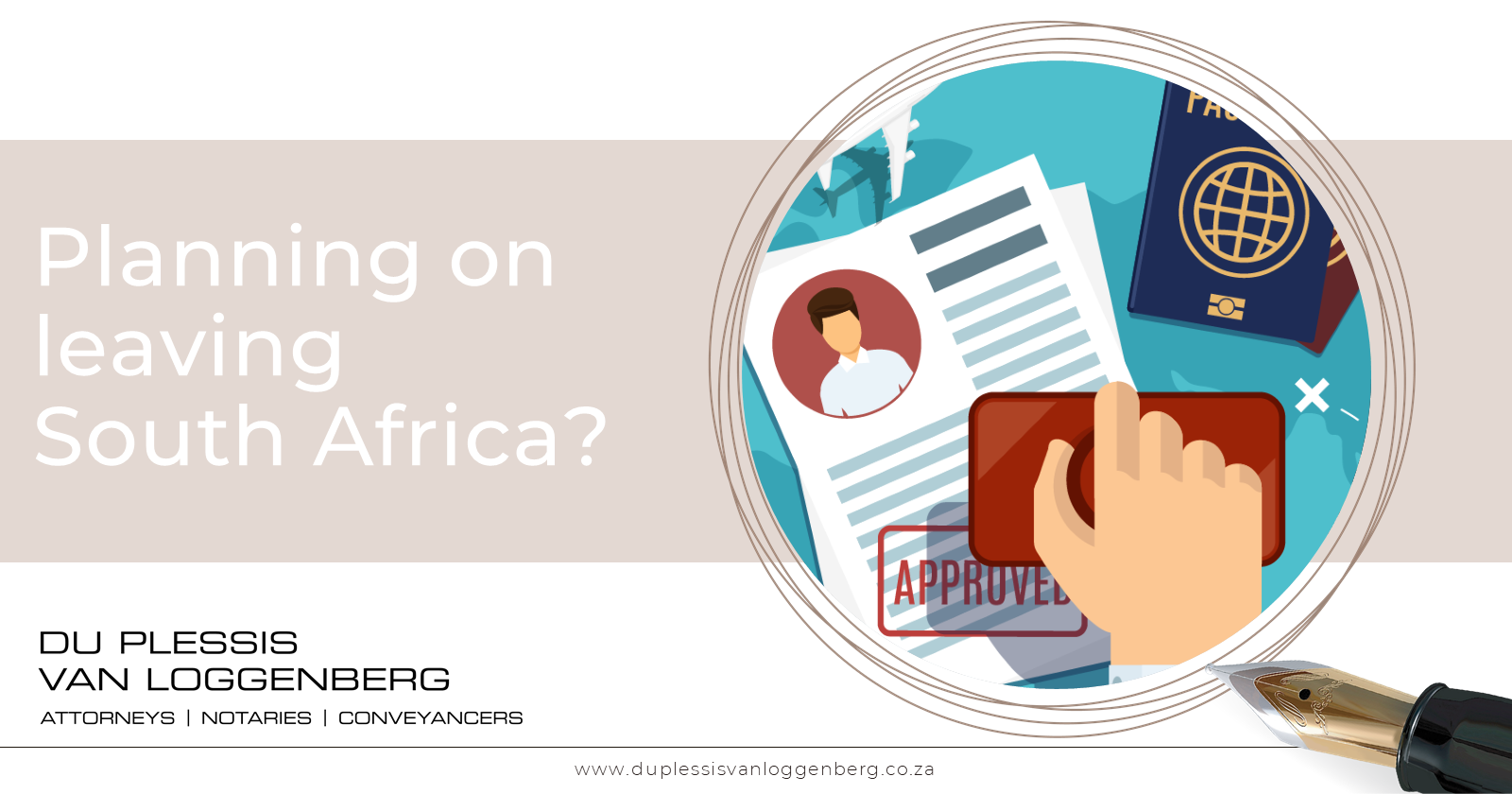
Planning on leaving South Africa?
13/01/2020 - By Tiffany MareIf you own property in South Africa and plan on leaving temporarily or indefinitely, it might be necessary for you to give someone you trust authorization to act on your behalf for the sale of your property. The document is referred to as a Power of Attorney. This allows the authorized person to attend to the necessary affairs on your behalf.
You can grant one of two Powers of Attorney:
• Special Power of attorney
The agent is given authority to act in one specific transaction and the power to act would lapse on completion of the act. For example, signing the transfer documents for the property you are selling. The original signed Power of Attorney will need to be lodged together with the transfer documents in the Deeds Office.
• General Power of attorney
The agent is given authority to act in a collection of transactions, generally on behalf of someone else. A General Power of Attorney is wide and all-encompassing. This allows the third party to authorise the transactions, agreements, or conduct various activities on behalf of the grantor. The original document will need to be lodged and registered at the Deeds office, which can then be used for future property transactions as well. The General Power of Attorney will remain valid until such time as it is revoked, when the mandate is completed or where the agent or grantor passed away, is sequestrated or becomes mentally unfit.
All Powers of Attorney must be signed by the grantor and 2 witnesses (Witnesses cannot derive any benefit from the power of attorney).
ALREADY LEFT SOUTH AFRICA?
It is important to note that if you have already left South Africa without attending to the above, the process of getting the necessary documents signed for the transfer of your property becomes more costly and complicated.
Documents, particularly Powers of Attorney, signed outside South Africa for use within South Africa must be authenticated as set out in Rule 63 of the High Court, OR as stipulated in the Hague Convention. This means that any documents executed in a country other than South Africa are deemed to be sufficiently authenticated for use in the Republic if it has been duly authenticated (by means of a certificate attached to the document), at such foreign place by the signature and official seal of the South African Embassy. If the South African Embassy is not easily accessible, the following will apply :
1. Any document signed in one of the following Countries : United Kingdom of Great Britain and Northern Ireland (England or Ireland) Lesotho, Swaziland and Zimbabwe, must be signed by the grantor in the presence of a Notary Public practising as such in that country, who must identify the signatories, sign the document and affix his/her seal of office to the document.
2. Any document executed in any country other than set out above, must be signed in the presence of a Notary Public practising as such in that country AND IN ADDITION the Apostille process will apply. The Apostille is a uniform international document and the Notary Public assisting with the signature of the document will be in a position to advise you regarding what must be done in order to obtain an Apostille after you have signed the document/s in their presence.
Due to the stringent and costly process for the authentication of documents signed in another country, it is therefore highly recommended that you speak to a Conveyancer before leaving South Africa.
